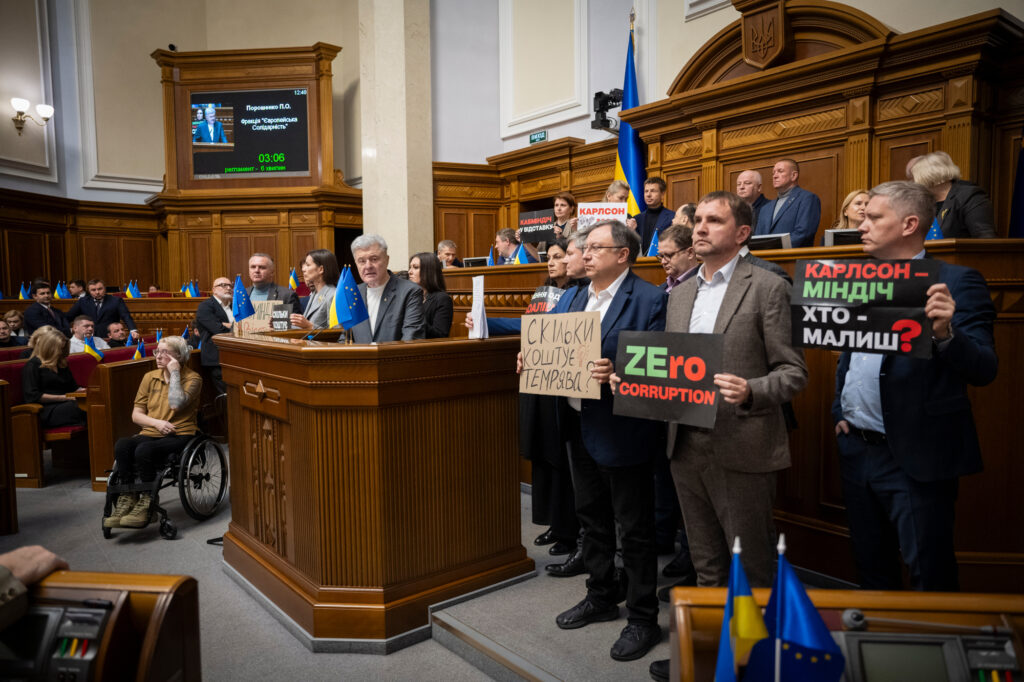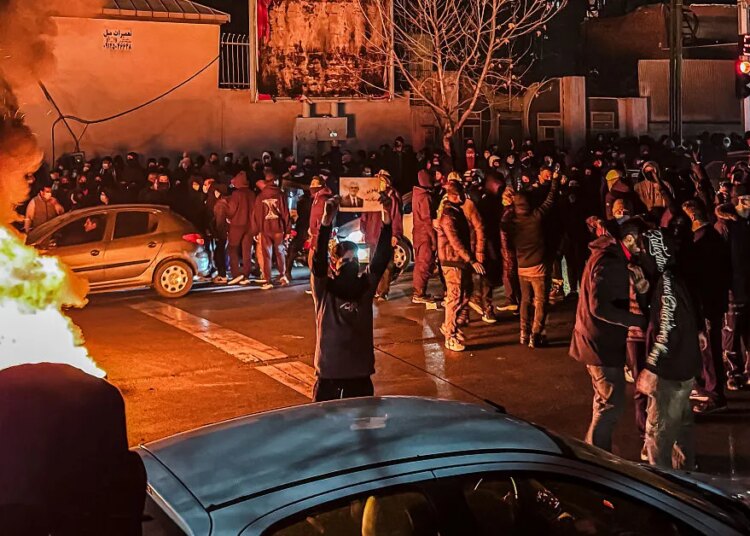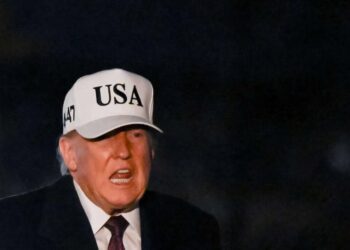Andi Hoxhaj, a lecturer in law and director of the European Law LLM pathway program at King’s College London, is the author of “The EU Anti-Corruption Report.”
In the middle of Ukraine’s daunting struggle for survival, a second threat has reared its head — a threat that strikes from within and endangers not only the war effort, but also the country’s international standing and its bid for European Union membership.
A $100 million corruption scandal at Energoatom, Ukraine’s state nuclear operator, has exposed deep structural weaknesses within Ukraine’s government and institutions. Ukrainian anti-corruption agencies have alleged that, to secure contracts with the company, including for work intended to protect nuclear facilities from Russian strikes, contractors have paid kickbacks of up to 15 percent to a criminal organization purportedly linked to advisers of the former energy minister and other senior government officials. Highly placed insiders, including Tymur Mindich, a former associate of President Volodymyr Zelensky, were reportedly involved, highlighting the scandal’s proximity to Kyiv’s political elite.
While Russia targets Ukrainian energy infrastructure, unscrupulous actors are siphoning off funds meant to reinforce the very sector under missile fire. In wartime, corruption is not just a failure of governance; it poses a strategic threat.
Misallocated resources compromise critical infrastructure, demoralize soldiers and civilians, and weaken Ukraine’s credibility as it seeks to maintain international support. Western allies, already providing billions in military and financial aid, will now closely watch how decisively Kyiv confronts this corruption crisis.
Zelensky has dismissed two cabinet ministers since the scandal erupted. That is a necessary step for maintaining public confidence, but firing officials does not address the structural issues that have enabled corruption to flourish. Ukraine has robust anti-corruption laws and institutions, but the fight against graft is weakened by constant political interference.
After the 2014 revolution (sparked by systemic corruption) and the fall of President Viktor Yanukovych, Ukraine established new anti-corruption frameworks, including the National Anti-Corruption Bureau and the Specialized Anti-Corruption Prosecutor’s Office.. These bodies were designed to operate independently following years of political patronage shielding high-level corruption. Yet their independence is vulnerable, especially when the urgency of wartime is used to justify shortcuts.
This summer, when the Zelensky administration attempted to limit the organizations’ powers, Kyiv witnessed the largest anti-corruption protests in years. Ukrainians sent a clear message to Zelensky: Corruption is not a secondary issue, even in wartime. It weakens the state from within and undermines the democratic values that Ukrainian soldiers are defending — and that Western allies are supporting in the fight against Russia.
The Trump administration and U.S. lawmakers skeptical of providing further aid are likely to see scandals like Energoatom as proof that Ukraine cannot responsibly manage wartime resources. European states wary of Ukraine’s bid to join the European Union, such as Hungary, will view it as evidence that Kyiv is still far from meeting that bloc’s governance standards.
The Western Balkans offer a stark warning that Zelensky should note: When political elites undermine reforms aimed at fighting corruption and bolstering the rule of law, progress toward E.U. membership stalls for decades. If Ukraine fails to act decisively, it risks losing international trust, critical aid and a long-term path to E.U. membership — which could have devastating consequences for both the war effort and the country’s future.
The Energoatom scandal should be a pivotal moment. It demonstrates that corruption reflects deep institutional weaknesses: opaque procurement practices, politicized oversight of state-owned enterprises and inadequate protections and independence for investigators. The evidence in the case reportedly includes more than 1,000 hours of recorded conversations, suggesting that the rot is deep-rooted and not limited to rogue actors.
Ukraine must be forceful in addressing these structural problems. The anti-corruption agencies must be allowed to operate without political interference. State-owned enterprises — particularly in the energy field — must become models of transparency, with public disclosure of major contracts, competitive bids as the default, and clear visibility into subcontracting chains.
Judicial capacity should be strengthened, particularly through expansion of the High Anti-Corruption Court, so that high-profile wartime cases can proceed efficiently to judgment. Western partners also have a role to play: Aid should be linked to tangible outcomes, including successful prosecutions, recovered assets, clear audit trails and the protection of institutional independence. Independent oversight mechanisms, involving civil society and international experts, could monitor high-risk sectors such as defense and energy, giving Ukrainians confidence that corruption is being tackled effectively.
These reforms are practical, align with Ukraine’s prospective E.U. membership commitments and respond to citizen demands for accountable governance even during war. They are essential to maintaining the trust of allies whose support underpins Ukraine’s resistance.
Zelensky has been a key moral figure, central to sustaining morale in the fight against Russia. He now faces the opportunity — and the responsibility — to show that the struggle for Ukraine’s future is not only about repelling missiles but also about rooting out corruption.
Building resilient, transparent institutions that uphold the rule of law — even if it means confronting those closest to the president — is not optional; it is central to Ukraine’s survival. The Energoatom scandal is a stark warning: Corruption is as dangerous as Russian missiles. After his summer attempts to weaken anti-corruption institutions, Zelensky cannot allow this scandal to be swept under the rug as merely another unfortunate mistake.
Ukraine cannot fight a war on two fronts. Defeating Russia will require not only courage on the battlefield but also a relentless fight against corruption and a firm commitment to the rule of law at home.
The post Ukraine’s corruption scandal is as dangerous as Russian missiles
appeared first on Washington Post.



